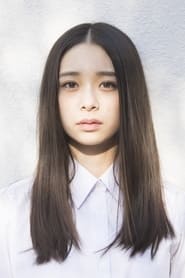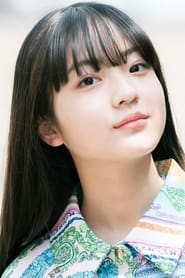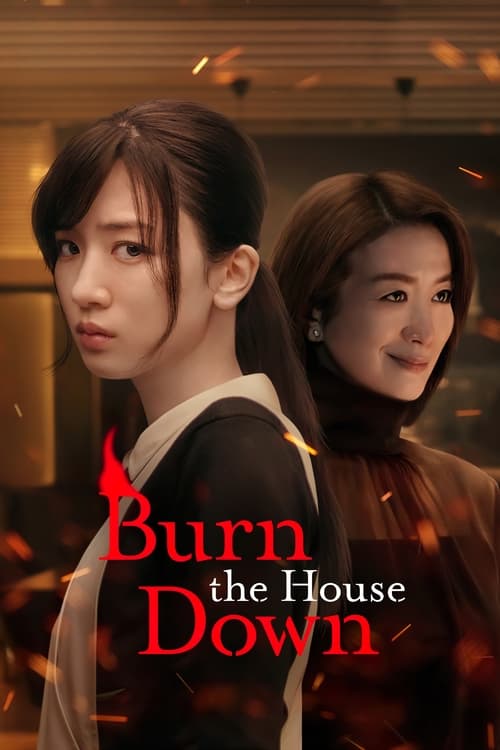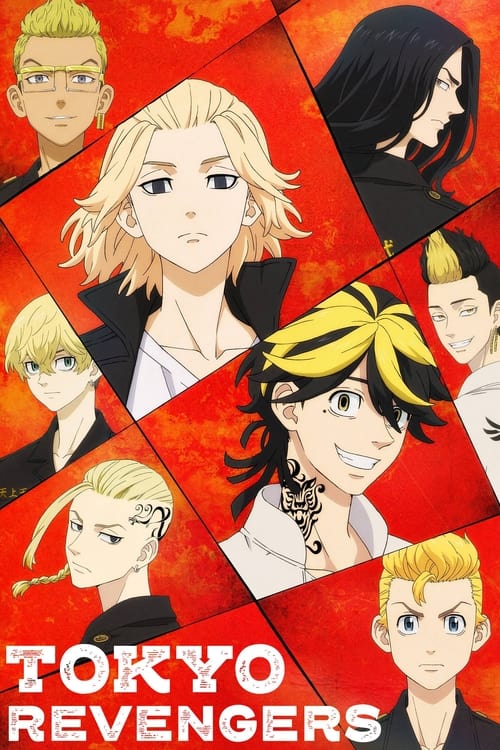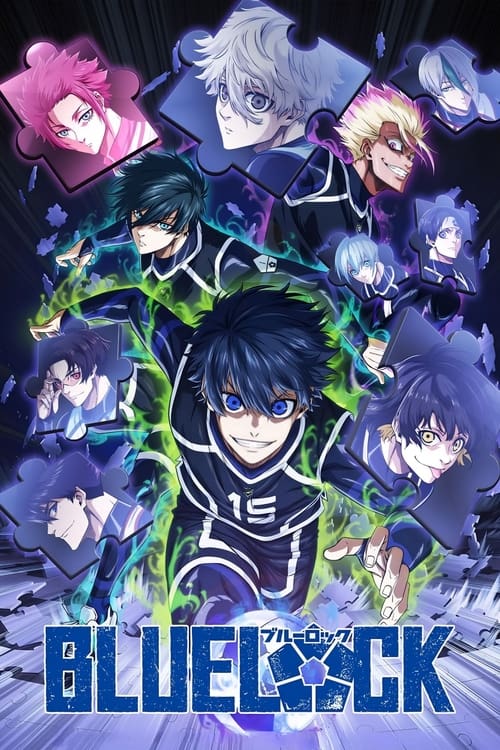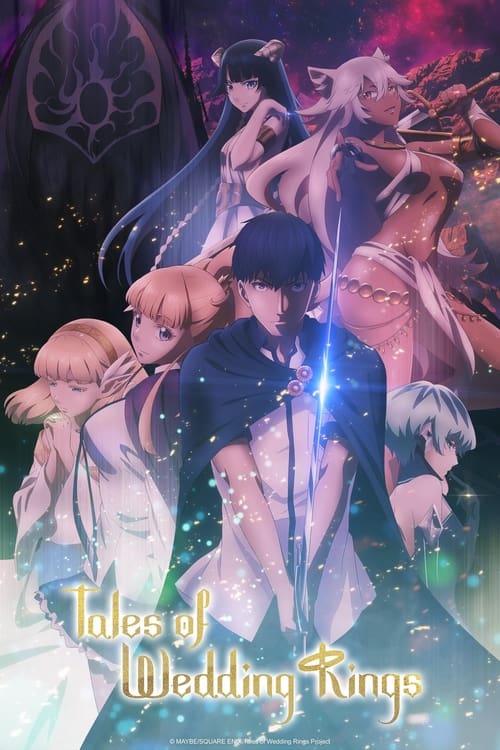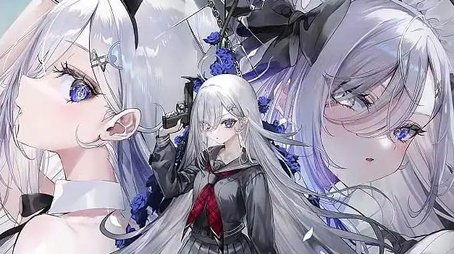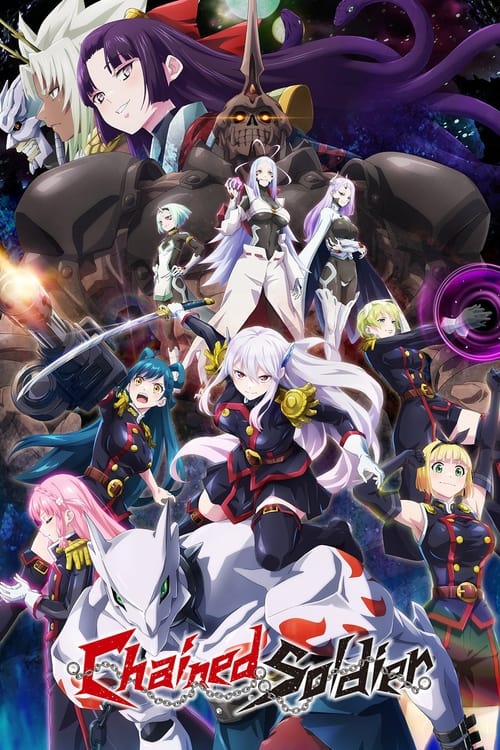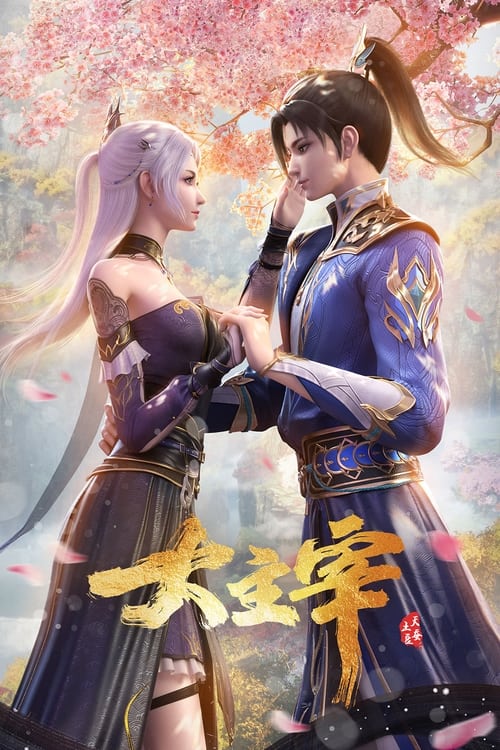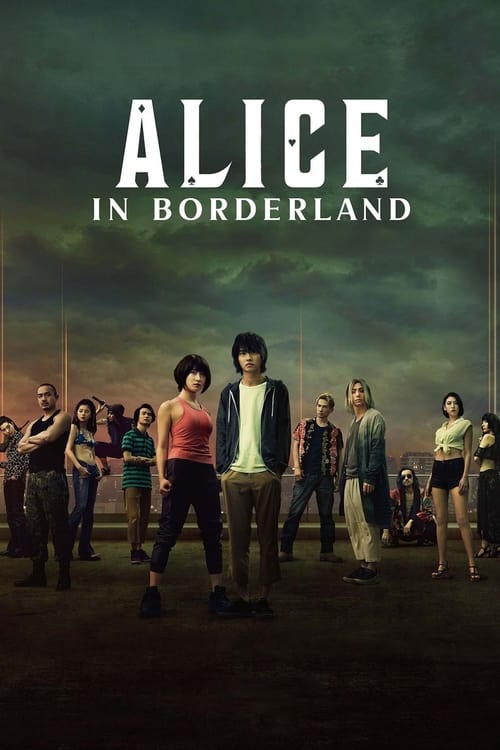
Ask Your Own Question
What is the plot?
In the opening scene of "Episode 3," the atmosphere is tense as the students prepare for their graduation ceremony. The camera pans over the decorated hall, filled with colorful banners and flowers, while the sound of excited chatter fills the air. Among the students, Kamiya Utako is noticeably absent, which raises concerns among her classmates. The focus shifts to her close friend, who expresses worry about Utako's whereabouts, hinting at her struggles with anxiety and self-doubt.
As the ceremony begins, the principal delivers a heartfelt speech about the importance of moving forward and embracing new beginnings. The camera captures the mixed emotions on the faces of the students, some smiling while others appear somber. The friend continues to glance at the entrance, hoping for Utako to arrive. Meanwhile, flashbacks reveal Utako's internal conflict; she is seen grappling with her fears and insecurities, contemplating whether she is ready to face the world outside of school.
The scene transitions to Utako, who is shown in her room, surrounded by graduation memorabilia. She is dressed in her graduation gown but is sitting on her bed, staring blankly at the wall. Her internal monologue reveals her feelings of inadequacy and fear of disappointing her friends and family. She recalls moments from her school life, both joyful and painful, which intensifies her emotional turmoil. The weight of her decision not to attend the ceremony becomes clearer as she battles with her thoughts.
Back at the ceremony, the students are called up one by one to receive their diplomas. The camera captures the pride and joy of those who walk across the stage, but the absence of Utako is felt deeply. Her friend, now visibly distressed, whispers to another classmate about how Utako had promised to be there. The mood shifts as the principal announces the final student, and the applause echoes through the hall, but it is tinged with a sense of loss for Utako's absence.
In a pivotal moment, the scene cuts back to Utako, who suddenly stands up, determination flickering in her eyes. She grabs her graduation cap and rushes out of her house, her heart racing as she makes her way to the ceremony. The music swells, reflecting her newfound resolve. As she runs through the streets, the visuals emphasize her struggle against her fears, with close-ups of her determined expression and the world blurring around her.
As Utako arrives at the venue, she hesitates at the entrance, her heart pounding. She takes a deep breath, recalling the supportive words of her friends and family. Gathering her courage, she pushes the doors open and steps inside, drawing the attention of the audience. The moment is electric; the camera captures the surprise and joy on her friends' faces as they spot her. The atmosphere shifts from somber to celebratory, and the audience erupts in applause.
Utako walks towards the stage, her steps steady despite the anxiety bubbling within her. As she approaches the principal, she is met with a warm smile and an encouraging nod. The principal hands her the diploma, and the moment feels monumental. Utako's eyes glisten with tears of relief and happiness as she finally feels a sense of belonging and accomplishment.
The episode concludes with a heartwarming scene of Utako reuniting with her friends after the ceremony. They embrace her, showering her with praise and support. The camera captures their laughter and joy, highlighting the bond they share. Utako's internal struggle is not entirely over, but she has taken a significant step forward, and the episode ends on a hopeful note, with her looking towards the future with a newfound sense of confidence.
What is the ending?
In the ending of "Kamiya Utako Is Not at the Graduation Ceremony," Utako finally confronts her feelings about her absence from the graduation ceremony. She realizes the importance of closure and the connections she has with her classmates. The episode concludes with her attending a gathering with her friends, where they share memories and support each other, solidifying their bonds despite the challenges they faced.
As the episode unfolds, we see Utako grappling with her decision to skip the graduation ceremony. The scene opens with her sitting alone in her room, surrounded by her graduation attire, a stark reminder of the event she chose to avoid. Her internal conflict is palpable; she feels a mix of regret and relief, unsure of how to reconcile her feelings about her classmates and the memories they shared.
The narrative shifts to her friends, who are at the graduation ceremony, celebrating their achievements. They are filled with joy, but there is an underlying sense of absence as they notice Utako's absence. One of her closest friends, Aiko, expresses concern, feeling that something is amiss. This moment highlights the strong bonds they formed during their school years, emphasizing the emotional weight of Utako's choice.
Back in her room, Utako receives a message from Aiko, inviting her to a post-graduation gathering. Initially hesitant, she contemplates the invitation, reflecting on her friendships and the moments that defined her school life. The camera captures her expressions of longing and uncertainty, showcasing her internal struggle.
As the gathering unfolds, we see her friends reminiscing about their time together, sharing laughter and stories. The atmosphere is warm and nostalgic, filled with a sense of camaraderie. Aiko, noticing Utako's absence, suggests they should reach out to her, emphasizing the importance of including everyone in their celebrations.
In a pivotal moment, Utako decides to join her friends at the gathering. The scene transitions to her arriving at the venue, where she is greeted with surprise and joy. The emotional reunion is filled with heartfelt exchanges, as her friends express their happiness to see her. Utako's initial apprehension begins to fade as she is enveloped in the warmth of their acceptance.
As the night progresses, the group shares their hopes and dreams for the future, reflecting on their individual journeys. Utako opens up about her feelings of isolation and the reasons behind her absence from the ceremony. Her vulnerability resonates with her friends, who offer their support and understanding. This moment serves as a turning point for Utako, as she realizes that her connections with her friends are stronger than her fears.
The episode concludes with a poignant scene of the group taking a photo together, symbolizing their enduring friendship. Utako, now smiling and at ease, understands that while she may have missed the graduation ceremony, she has not missed out on the love and support of her friends. The final shot lingers on their joyful faces, encapsulating the theme of connection and the importance of facing one's fears.
In summary, the ending of "Episode 3" emphasizes the significance of friendship, acceptance, and the courage to confront one's emotions. Utako's journey culminates in a moment of reconciliation with her past and a renewed commitment to her relationships, leaving viewers with a sense of hope and warmth.
Is there a post-credit scene?
In "Kamiya Utako Is Not at the Graduation Ceremony," Season 1, Episode 3, there is indeed a post-credit scene that adds a layer of depth to the episode's themes.
As the credits roll, the scene opens with a quiet, dimly lit classroom. The camera pans slowly across the empty desks, lingering on a few scattered graduation caps and a bouquet of flowers left behind. The atmosphere is heavy with a sense of absence, reflecting the emotional weight of the episode.
Suddenly, the door creaks open, and Kamiya Utako steps into the room, her expression a mix of determination and vulnerability. She hesitates for a moment, taking a deep breath as she surveys the space that once buzzed with her classmates' laughter and excitement. The silence is palpable, amplifying her feelings of isolation.
Utako walks to the front of the classroom, where a large poster celebrating the graduation hangs. She reaches out, her fingers brushing against the colorful decorations, and a flicker of nostalgia crosses her face. In this moment, the audience can feel her internal struggle--she grapples with her decision to not attend the ceremony and the weight of her choices.
As she stands there, lost in thought, a soft voice calls from the doorway. It's her friend, who had been searching for her. The friend's presence brings a glimmer of hope, and Utako's expression shifts from sorrow to a tentative smile. They share a brief, heartfelt exchange, hinting at the support and understanding that still exists between them despite the day's events.
The scene closes with the two of them walking out of the classroom together, the door swinging shut behind them. The final shot lingers on the empty room, a poignant reminder of what was missed but also a symbol of new beginnings and the importance of connection. This post-credit scene encapsulates the episode's exploration of loneliness and the value of friendship, leaving viewers with a sense of hope for Utako's journey ahead.
What motivates Kamiya Utako to skip the graduation ceremony?
In Episode 3, Kamiya Utako grapples with her feelings of inadequacy and the pressure of expectations. She feels disconnected from her peers and struggles with the idea of celebrating an achievement she doesn't fully believe she deserves. This internal conflict drives her decision to avoid the ceremony.
How does Utako's relationship with her classmates evolve in this episode?
Throughout Episode 3, Utako's relationship with her classmates is strained as she isolates herself. However, moments of reflection and interactions with a few supportive friends reveal her longing for connection, highlighting her internal battle between wanting to belong and her feelings of unworthiness.
What role does the graduation ceremony play in Utako's character development?
The graduation ceremony serves as a pivotal moment for Utako's character development in Episode 3. It symbolizes not only a transition in her life but also the culmination of her struggles with self-acceptance. Her choice to skip the event forces her to confront her fears and ultimately leads to a deeper understanding of herself.
How do the other characters react to Utako's absence from the ceremony?
In Episode 3, Utako's absence is felt by her classmates, particularly by those who have been close to her. They express concern and confusion, showcasing their desire for her to be part of the celebration. This reaction highlights the impact of her isolation and the bonds she has with her peers.
What specific events lead to Utako's decision to reflect on her choices?
In Episode 3, a series of flashbacks and conversations with her friends lead Utako to reflect on her choices. Key moments include a heartfelt discussion with a classmate who shares their own insecurities and a poignant memory of a past event that made her feel excluded. These events catalyze her introspection and ultimately influence her decision regarding the graduation ceremony.
Is this family friendly?
"Kamiya Utako Is Not at the Graduation Ceremony," season 1, episode 3, contains themes and scenes that may be sensitive for children or those who are easily upset. Here are some aspects to consider:
-
Emotional Turmoil: The episode explores feelings of disappointment and sadness, particularly surrounding graduation and the absence of a key character, which may resonate deeply with viewers who have experienced similar emotions.
-
Social Anxiety: Characters display signs of social anxiety and pressure related to graduation, which could be relatable but also distressing for sensitive viewers.
-
Conflict Among Peers: There are moments of tension and conflict between characters, which may include misunderstandings or hurtful comments that could be upsetting.
-
Themes of Abandonment: The absence of a significant character during a pivotal moment can evoke feelings of abandonment or neglect, which might be challenging for younger audiences to process.
-
Realistic Depictions of Life Changes: The episode addresses the transition from school to the next stage in life, which can be a source of anxiety for some viewers, particularly those facing similar transitions.
Overall, while the show is not overtly inappropriate, it does delve into emotional and social themes that may require parental guidance for younger viewers.




